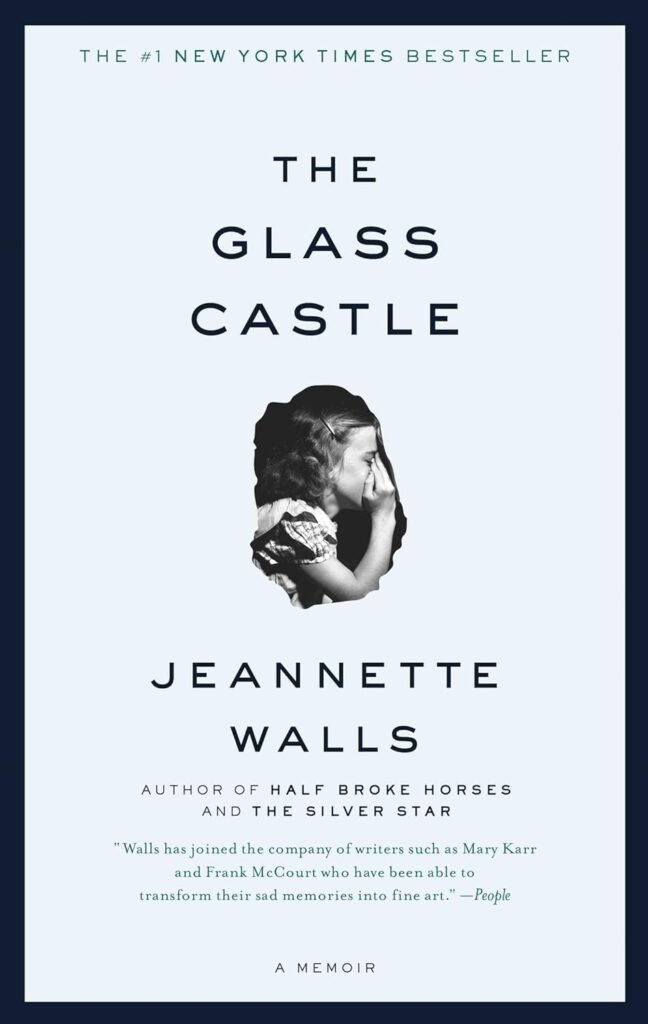What makes a childhood unforgettable? Is it the threshold of joy, or is it the murky depths of chaos? In “The Glass Castle” by Jeannette Walls, we’re handed a front-row ticket to a childhood steeped in wild adventures and heartbreaking neglect. It’s not just a memoir; it’s like sitting down with someone who doesn’t sugarcoat their past—you get the good, the bad, and all the bits in between.
But let me warn you, it’s far from a pity party. Instead, it’s a raw and oddly beautiful celebration of grit, dreams, and human endurance. So buckle up, because this is no smooth ride—it’s a rollercoaster barreling through the absurdities of an unorthodox family. And guess what? You’ll get off feeling like you’ve learned something profound about survival and forgiveness.
Table of Contents
Overview of ‘The Glass Castle’
First things first: this memoir is nothing short of extraordinary. Jeannette Walls recounts her life growing up in a family that was, let’s just say, unconventional to the max. Born into a household of dreamers and drifters, Jeannette had a childhood that was anything but normal—think constant moving, a father with big promises of building an extraordinary glass castle, and a mother more invested in expressing her artistic soul than keeping food on the table. For a closer look, you might want to check out The Glass Castle on Goodreads.
But don’t get it twisted—this isn’t a sob story. Frequently on the brink of poverty, the Walls kids show a level of resilience that’s downright inspiring. Amidst all the chaos, their father’s charisma and their mother’s passion for self-expression create moments of wonder. It’s a mix of the absurd, the tragic, and the hopeful, making this memoir a visceral experience. If you’ve never read it before, it might be time to grab a copy from Simon & Schuster.
A Memoir of Resilience and Survival
The heartbeat of this book is resilience. Seriously, these kids survive situations that most of us would call pure madness. Living without electricity or running water? Check. Dumpster-diving to stave off hunger? Been there. Getting burned cooking hot dogs at three years old? Yep. Things that would break most people barely seem to faze the Walls siblings. That’s not to say they glide through hardship unscathed—but their ability to adapt and push forward is nothing short of jaw-dropping.
And Jeannette’s narration? It’s packed with humor, honesty, and zero self-pity. She somehow finds beauty in the wreckage, as well as the courage to break free from the cycle of dysfunction as she grows older. That’s what lands this memoir among the most moving accounts of overcoming adversity—and no, I’m not being dramatic. Check out more about this gripping story on Wikipedia.
Structure and Narrative Style
The book flows like life itself—unpredictable, emotional, and raw. It’s told in a straightforward, chronological layout, but Walls also reflects on key moments with the kind of hindsight only adulthood can bring. This duality allows readers to see events through her young eyes while also understanding the deeper implications as she interprets them now.
Jeannette’s writing is unflinching and conversational, which makes it incredibly engaging. Whether she’s describing the family’s cross-country escapades or her father’s ill-fated inventions, her storytelling keeps you hooked. For more insights into Walls’ narrative, the Los Angeles Times dives into her unique voice.
Key Characters in ‘The Glass Castle’
Jeannette Walls: The Protagonist
Jeannette is not just the storyteller; she’s the glue of this memoir. As a kid, she’s scrappy and resourceful, often taking on responsibilities that should never fall on a child. And as an adult? She emerges as a fierce and determined force, fueled by a relentless drive to carve out a better life for herself. Her transformation is nothing short of inspiring, and by the end of the book, you feel like you’ve grown with her.
Rex and Rose Mary Walls: The Contradictory Parents
Rex Walls is a study in contradictions—one minute, he’s the life of the party, scheming up fantastical inventions like the eponymous glass castle; the next, he’s stumbling home drunk and letting his family down. His wife, Rose Mary, isn’t any easier to peg. She prioritizes painting over solvable problems like, say, feeding her starving kids. Yet, in their own way, both parents nurture their children’s imagination and independence. Messy, complex, and sometimes infuriating, they’re impossible to forget.
If you’re curious about how these characters came to life on-screen, this LA Times piece takes a look into the making of the movie adaptation.
Siblings and Their Importance
Lori, Brian, and Maureen are far from side characters—they’re essential pillars in Jeannette’s life. Lori’s the artistic eldest sibling, Brian’s the practical middle child, and Maureen’s the youngest who struggles in ways unique to their upbringing. Together, they form a tight-knit unit, often banding together to brave the world their parents create.
Major Themes in ‘The Glass Castle’
The Concept of Home and Stability
Here’s the kicker: the Walls’ idea of “home” is as elusive as Bigfoot. Forever on the move, the family’s transient lifestyle raises big questions about what home really means. Is it a physical space, or the people you crash with?
Nonconformity and Independence
This family rejects societal norms with the kind of gusto most of us only dream of. Rex and Rose Mary live life on their terms, for better or worse, and they instill that defiance in their kids. For Jeannette, this means finding her own path while still carrying the lessons (and baggage) of her upbringing.
Parental Influence and Responsibility
It’s impossible to discuss this book without grappling with how deeply parenting shapes each child. The memoir examines the thin, often ambiguous line between love and neglect—and forces readers to sit with that discomfort.
Symbolism in ‘The Glass Castle’
The Glass Castle as a Dream
Rex’s grandiose plan to build a glass castle embodies the family’s dreams—and their disappointments. It’s a symbol of hope and imagination, but also a glaring reminder of promises broken.
Fire and Chaos
Fire is everywhere in this book. It’s destruction and danger, but also warmth and resilience. You can’t help but see it as a metaphor for the Walls’ volatile lives.
Possessions and Identity
Material items (or the lack thereof) take on huge symbolic weight in this story. The Walls’ barebones existence forces readers to question what possessions really mean to them.
Conclusion
If you’ve ever needed proof that truth is stranger—and sometimes more gripping—than fiction, “The Glass Castle” by Jeannette Walls is it. It’s a memoir that sticks with you, peeling back layers of hardship to reveal humanity’s unyielding ability to endure. This book doesn’t just tell a story; it challenges you to think about your own life, your own privileges, and your own resilience. If you haven’t picked it up yet, what’s stopping you?
You can grab a copy from Amazon and dive into one of the most astonishing memoirs ever written. Trust me, this is one book you’ll be talking about long after you’ve turned the last page.

